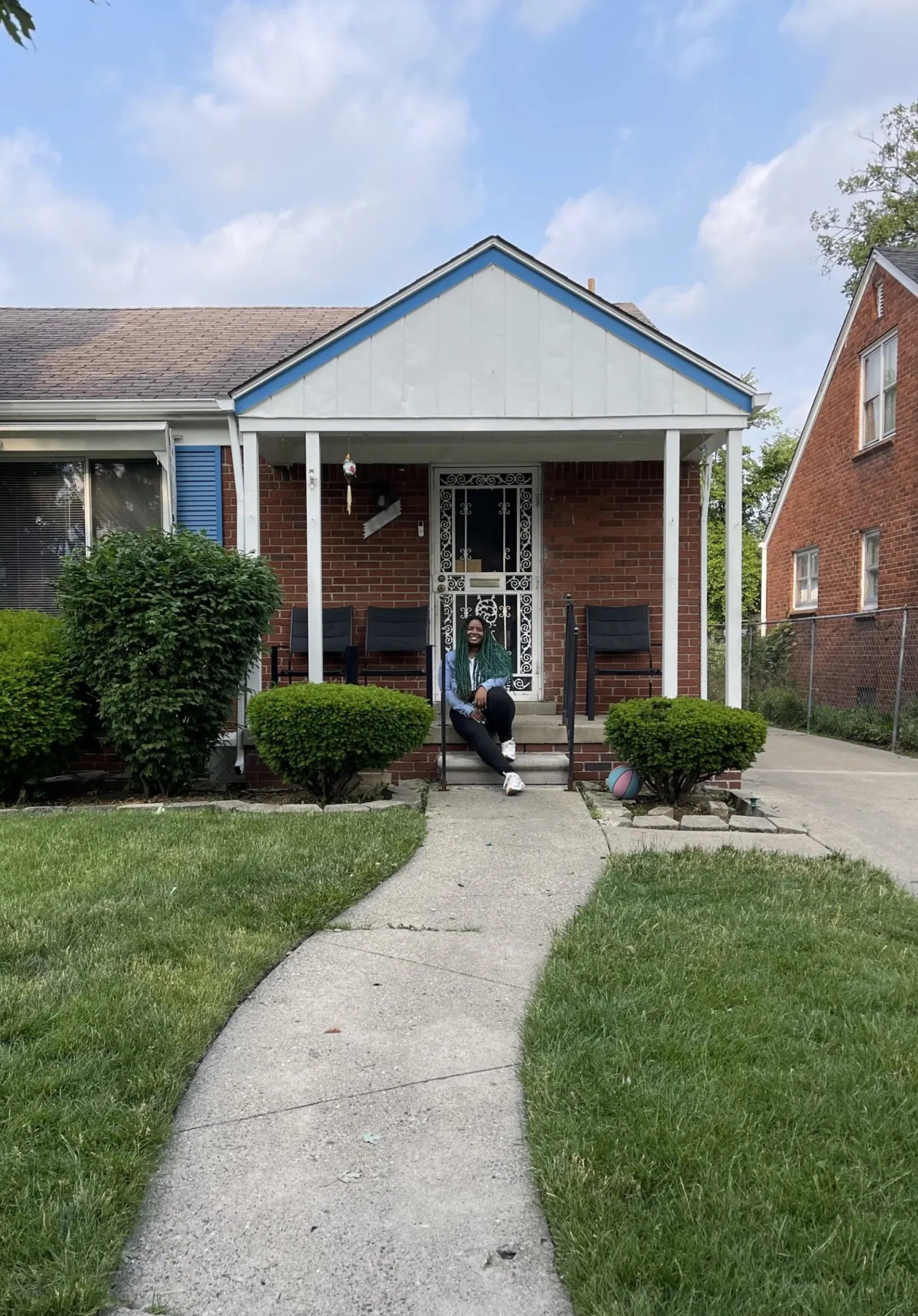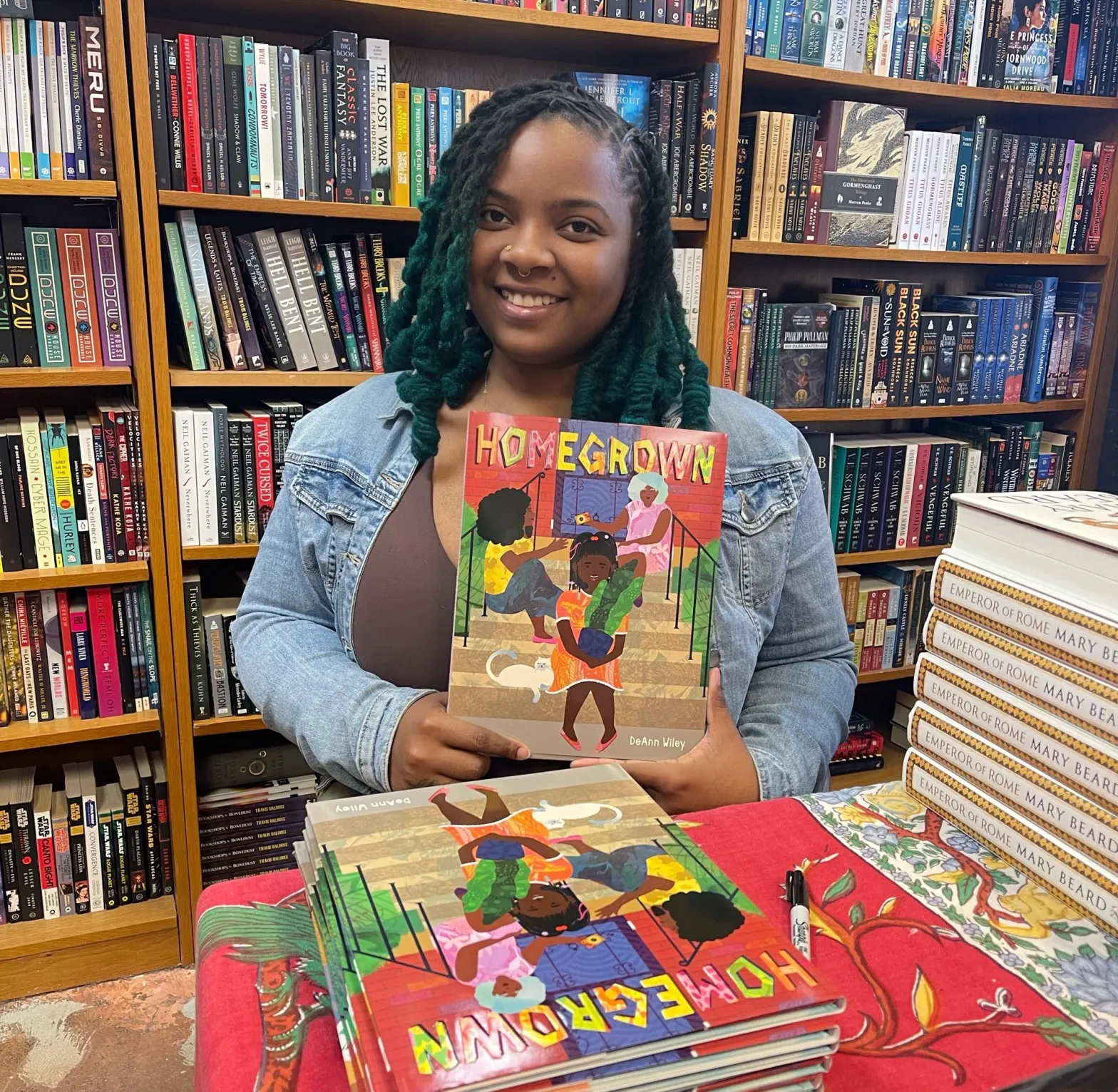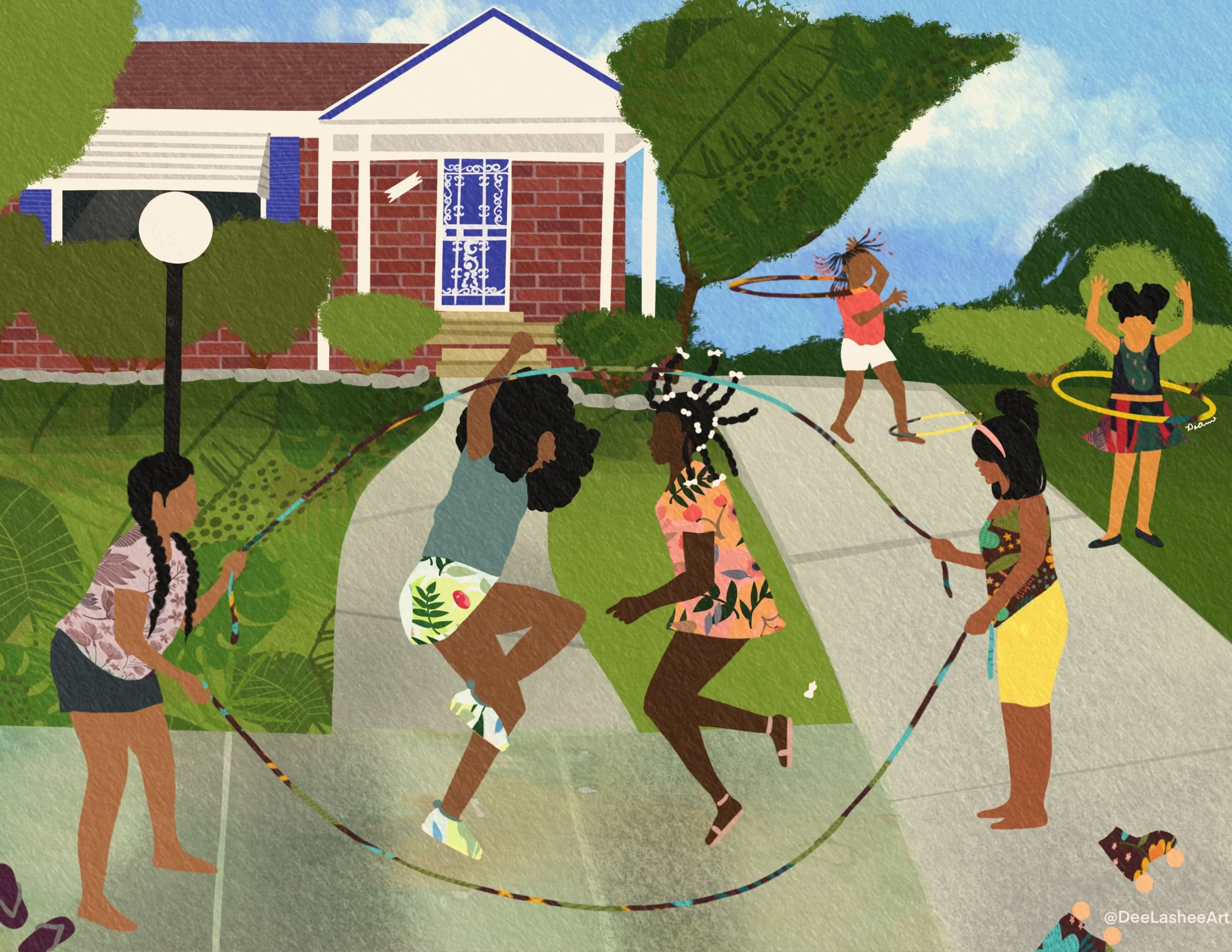This story was originally published by Outlier Media, a groundbreaking nonprofit newsroom designed to center and respond to Detroiters’ needs.
DeAnn Wiley fell in love with art in third grade. She often lost track of time sitting on the floor, sketching, painting, erasing and redrawing many pieces until each one was perfect. She asked her mother for art supplies for the first time back then. Wiley still has her earliest work tucked away in a little drawer.
The children’s book illustrator, born and raised in Detroit, has now been sharing her illustrations with fans and admirers on social media for years. They’re products of the work she did in her free time while working as a psychologist.
“When I post my art online, I get so many people who are saying things like ‘that looks just like my grandma’s house’ or ‘I remember I used to play with my cousins like that,’” Wiley said. “I get the opportunity to connect with so many people that I wouldn’t otherwise.”
In March, things changed for Wiley. She turned 30 and felt more financially secure, ready to make the leap into art full-time. She had illustrated books before, but for the first time, a book she both authored and illustrated — “Homegrown” — was published. It follows a girl, her mother and grandmother through a cozy tale of what home means to a multigenerational Black family.
Wiley’s art isn’t all for kids, though most of it features families. One of her focuses is on joyful Black childhood experiences: children playing hopscotch outside, running through sprinklers and twirling hula hoops around their necks. Mothers and grandmothers doing hair in the kitchen, hot comb on the stove. A young girl looking in a mirror and seeing herself in Halle Bailey playing Ariel.
Over the last four years, she’s moved to a style where the people she portrays in her art have no faces, so anyone viewing the work can feel connected with it. It’s also a nod toward other Black artists with a similar style, like social realist painter Jacob Lawrence.
DeAnn Wiley“I think (society) makes us feel like we have to be extraordinary to be (the subject of) art, or we have to be doing something amazing or fantastic in order to be praised or supported or to be loved. This little Black girl, she doesn’t have to be doing anything magical or fantastical. She just exists. That’s beautiful.”
It’s these experiences that make “Homegrown” and her art a “conversation with kinfolk,” Wiley said. She wants her work to be relatable to other people who grew up like she did: in a large family with strong matriarchs, connected to extended family.
Wiley grew up with a single mother and four siblings. She moved around a lot, but her grandmother’s home, a well-kept house in a quiet westside neighborhood, offered stability. Her grandmother still lives there today.

“My grandmother’s house was that constant for me,” Wiley said. “I went to three different high schools, at least four or five schools from preschool to eighth grade. But there, I can go there right now. When I think about Detroit and being home, that’s the house.”
Wiley painted with acrylics for the better part of her life. Her passion could keep her working for long stretches as time went by, but her body struggled to keep up.

Like many Detroiters, Wiley has asthma. Moving around to retrieve different paints and brushes was difficult. She eventually decided to switch to a tablet computer and stylus.
Five years since her transition to digital art, she has embraced the new medium.
“I’m doing art for eight or more hours at a time. I just found that digital art was a little bit more suitable to me being disabled. I don’t have to stand up, I don’t have to move a really big canvas. There’s not a whole lot of range of motion involved. … It just gives you a bit more freedom.”
She also found her new tools to be a lot more versatile.
“I can carry an iPad around anywhere and work on drawings during small breaks.”
Wiley said art is an opportunity for her to celebrate her culture, and she is drawn to artists that do similar work. One of her favorites is writer and illustrator Vashti Harrison.
Her favorite? A simple painting of young Black girl reading.
“I think (society) makes us feel like we have to be extraordinary to be (the subject of) art, or we have to be doing something amazing or fantastic in order to be praised or supported or to be loved. This little Black girl, she doesn’t have to be doing anything magical or fantastical. She just exists. That’s beautiful.”
Now that “Homegrown” is finished, Wiley is looking ahead to illustrating and writing more books. A book she illustrated was published this month, “Marley’s Pride” by Joëlle Retener, about a queer Black family. She is now working on another project, tentatively called “The Double Dutch Queens.”
Her long-term goal is to work with a big-time children’s book author like Harrison and to provide illustration services to LGBTQ+ and Black people who need them. But more importantly, she wants to continue to grow her art, using her passion to spread stories about growing up Black and well-connected with your family.
“I never knew that this would ever be something I pursued. This is my first year doing art full-time. So to have a book out, it makes me feel solidified in that decision. It feels good to do something that you love and be able to support yourself and family with it.”
